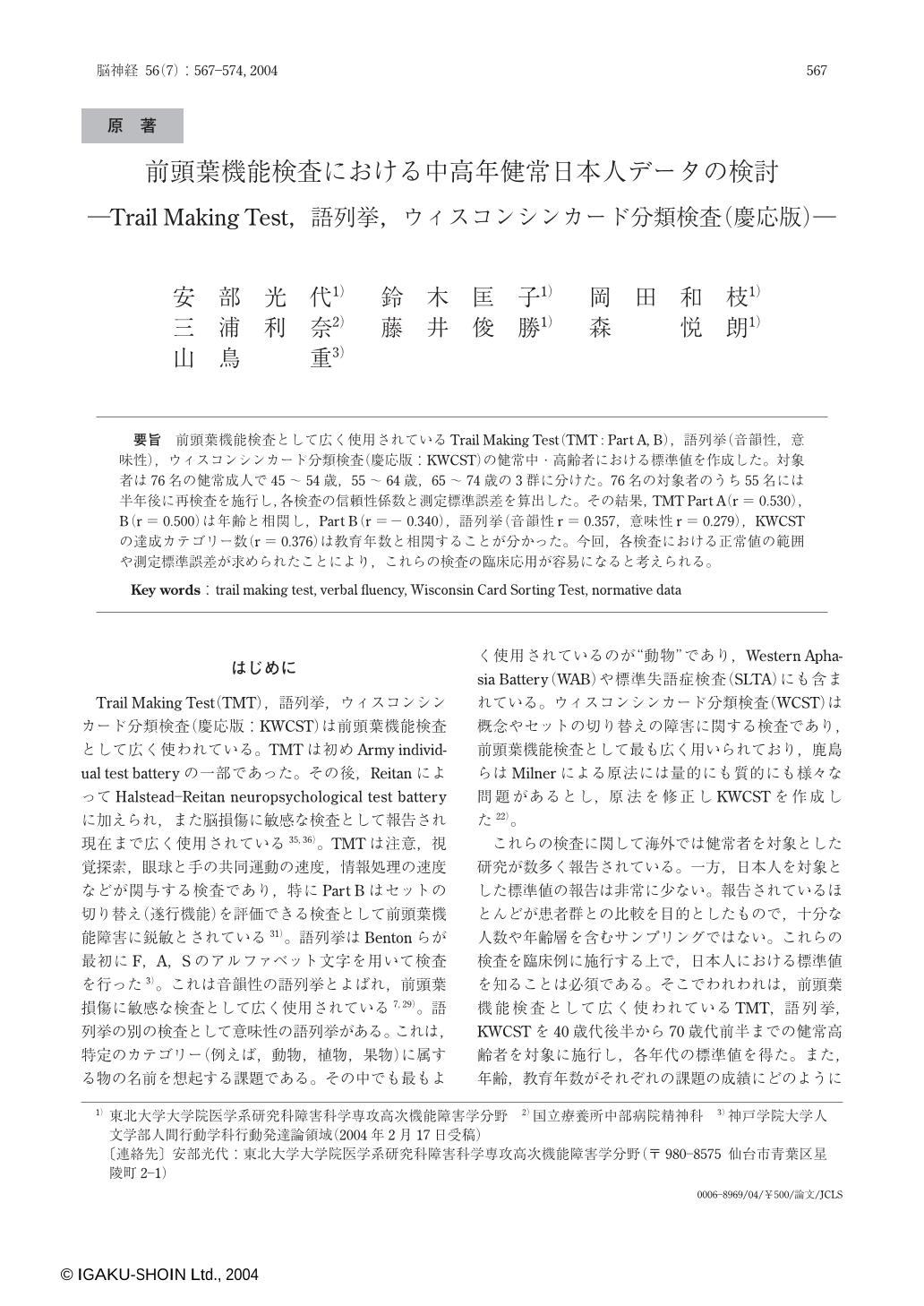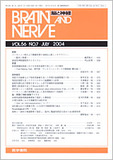Japanese
English
- 有料閲覧
- Abstract 文献概要
- 1ページ目 Look Inside
要旨 前頭葉機能検査として広く使用されているTrail Making Test(TMT : Part A, B),語列挙(音韻性,意味性),ウィスコンシンカード分類検査(慶応版:KWCST)の健常中・高齢者における標準値を作成した。対象者は76名の健常成人で45~54歳,55~64歳,65~74歳の3群に分けた。76名の対象者のうち55名には半年後に再検査を施行し,各検査の信頼性係数と測定標準誤差を算出した。その結果,TMT Part A(r=0.530),B(r=0.500)は年齢と相関し,Part B(r=-0.340),語列挙(音韻性r=0.357,意味性r=0.279),KWCSTの達成カテゴリー数(r=0.376)は教育年数と相関することが分かった。今回,各検査における正常値の範囲や測定標準誤差が求められたことにより,これらの検査の臨床応用が容易になると考えられる。
Trail Making Test(TMT Part A, B), Verbal fluency test(phonemic, semantic)and Wisconsin Card Sorting Tes(t Keio version : KWCST)are useful to evaluate frontal lobe functions and are commonly used in clinical settings. However, few normative data for aged Japanese have been reported. We collected normative data on these tests in elderly population, and examined the effects of age and education on the performance of these tests. Seventy-six healthy adults, aged 45 to 74 years, participated in this study. Subjects were classified into three groups by age(45-54, 55-64, 65-74). Fifty―five subjects repeated the same tests after 6 months to examine the test-retest reliability. Performance of the TMT Part A was correlated with age(r=0.530)and that of Part B was correlated with age(r=0.500)and education(r=-0.340). Performance on both phonemic and semantic fluency was correlated with education(phonemic : r=0.357, semantic : r=0.279). Number of Categories Achieved(CA)of KWCST was correlated with education(r=0.376). The test-retest reliability of all these tests except for semantic verbal fluency and difficulty maintaining set (DMS)of KWCST was good enough for longitudinal studies.(Received : February 17, 2004)

Copyright © 2004, Igaku-Shoin Ltd. All rights reserved.


